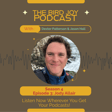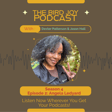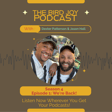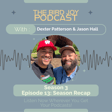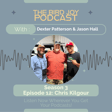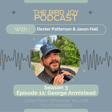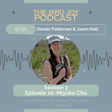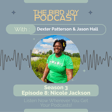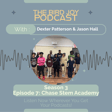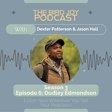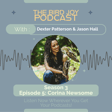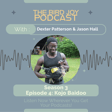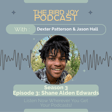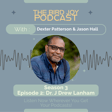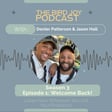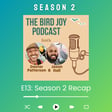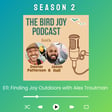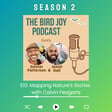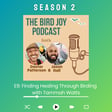
Birding, Grief, and Legacy with Melissa Hafting
In the final guest appearance of Season 2, Dexter and Jason sit down with British Columbia's own Melissa Hafting to explore how birding can provide profound healing and hope. Melissa reflects on her experiences as a Black woman birding in British Columbia and discusses her remarkable new book, Dare to Bird: Exploring the Joy and Healing Power of Birds. She shares how her parents nurtured her love for birds early on and how that foundational support motivates her to mentor the next generation of birders in her community and beyond through the BC Young Birders Program she founded in 2014.
Melissa is a trailblazer in the birding community, breaking barriers, championing diversity, and leading with grace and determination.
The conversation also touches on Melissa's favorite birding spots in BC, including the Reifel Migratory Bird Sanctuary and Boundary Bay. She talks about her role as an eBird reviewer and showcases her breathtaking bird photography.
Melissa Hafting is a shining example of how Black women significantly contribute to birding and beyond.
Connect with Melissa:
📸 Follow Melissa: @bcbirdergirl
🌐 Visit her website: Dare to Bird
We also want to thank the Special Bird Service, another Canadian organization dedicated to making nature more accessible. Through birding, they aim to remove barriers and challenge stereotypes about the outdoors.
Connect with Us:
🐦 Dexter: @WiscoBirder
🐦 Jason: @TheBirdingBeardsman
🌐 More episodes & resources: Bird Joy Podcast
🎙️ Are you ready for some Bird Joy? Let's Go!
